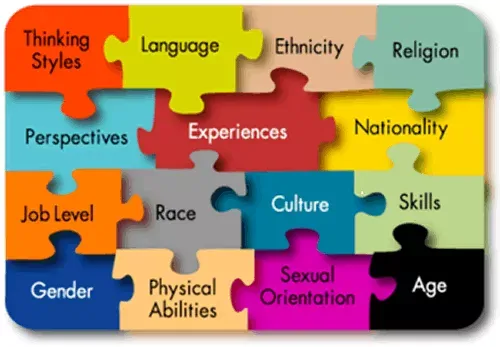Blog Posts

Emotional Intelligence and Suicide Prevention: Understanding and Supporting Mental Well-being
Emotional intelligence is more than just understanding and managing our emotions; it is about recognizing and empathizing with the emotions of others. When it comes to suicide prevention, emotional intelligence becomes a crucial tool in identifying and supporting...

The Crucial Role of Emotional Intelligence and DEI in the Workplace
Description: In this article, we delve into the significance of emotional intelligence (EI) and diversity, equity, and inclusion (DEI) in today’s workplace. Discover how a strong focus on EI and DEI can promote a more productive and harmonious work environment.
Emotional intelligence (EI) and diversity, equity, and inclusion (DEI) are two key factors that greatly influence workplace dynamics and success. Cultivating a high EQ (emotional quotient) among employees and prioritizing DEI initiatives can lead to improved communication, better decision-making, and enhanced team collaboration. In this article, we will highlight the importance of EI and DEI in creating a positive and inclusive work environment.
Emotional intelligence, often referred to as EQ, refers to one’s ability to recognize, understand, and manage their emotions effectively. It also involves perceiving and empathizing with the emotions of others. Research has shown that individuals with high emotional intelligence tend to have stronger relationships, better mental health, and higher job satisfaction. Moreover, EI plays a crucial role in managing conflicts, resolving interpersonal issues, and fostering teamwork among colleagues.
Implementing DEI practices is equally vital for organizational success. By embracing diversity, equity, and inclusion, companies can create an environment that celebrates the differences among their employees and promotes equal opportunities for all. Research has consistently demonstrated that diverse teams outperform homogeneous ones, as they bring a wider range of perspectives, ideas, and experiences to the table. Inclusive workplaces also cultivate a sense of belonging, which in turn leads to enhanced engagement, productivity, and creativity among employees.
Both EI and DEI are particularly crucial in today’s diverse and globalized business world. With teams comprising individuals from different cultural backgrounds, ethnicities, genders, and generations, companies must prioritize fostering an inclusive and emotionally intelligent work environment to thrive. By valuing diverse perspectives and encouraging open and respectful communication, organizations can harness the power of collective intelligence and innovation.
To promote emotional intelligence and DEI in the workplace, organizations can offer training programs that focus on developing self-awareness, empathy, and effective communication skills. Encouraging leaders to lead by example and demonstrating inclusive behaviors sets a positive tone for the entire organization. Companies can also implement policies and practices that ensure equal opportunities for career advancement and fair treatment for all employees.
In conclusion, emotional intelligence and diversity, equity, and inclusion are indeed imperative in the modern workplace. By fostering an emotionally intelligent and inclusive environment, organizations can tap into the full potential of their diverse workforce, leading to improved communication, better decision-making, and increased productivity. Embracing these concepts not only benefits individuals but also contributes to the collective success of the organization as a whole.






